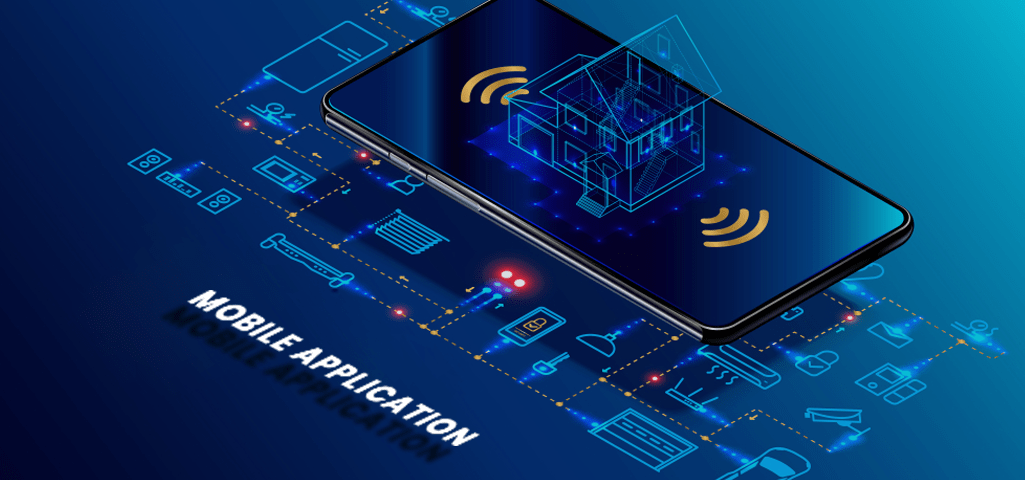
Unlocking Business Potential with Professional Application Development Services
In today’s fast-paced digital economy, having a strong online presence is no longer optional—it’s essential. Whether you’re a startup aiming to disrupt your industry or an established enterprise looking to streamline operations, investing in professional application development services can significantly elevate your business. From custom mobile applications to robust web platforms, the right app development partner can turn your vision into a high-performing, user-friendly solution.
In this blog, we’ll explore what application development services entail, why they’re crucial for modern businesses, and how to choose the right development partner for your needs.
What Are Application Development Services?
Application development services involve the process of designing, building, testing, and maintaining software applications tailored to meet specific business needs. These services typically include:
Mobile App Development (iOS, Android, Cross-platform)
Web Application Development
Custom Software Development
UI/UX Design
Application Modernization
Maintenance & Support
A professional application development company brings together developers, designers, project managers, and QA specialists to deliver robust, scalable, and user-centric solutions.
Why Businesses Need Custom Application Development
Off-the-shelf software can be cost-effective in the short term, but it rarely aligns perfectly with your business needs. Here’s why custom application development is the smarter investment:
1. Tailored to Your Unique Requirements
Custom applications are built from the ground up to solve specific challenges or enable unique features. This ensures your app does exactly what your business needs—nothing more, nothing less.
2. Scalability
As your business grows, so should your software. Custom applications are designed with scalability in mind, allowing you to integrate new features, serve more users, and adapt to evolving market demands.
3. Enhanced Security
Security is a top priority in application development. Custom apps can include enterprise-grade security features that are specific to your industry, unlike generic solutions that may have vulnerabilities.
4. Improved Efficiency and Productivity
Custom applications streamline operations by integrating seamlessly with your existing systems. Automation, optimized workflows, and real-time data access lead to greater productivity.
5. Competitive Advantage
An innovative, well-designed app can set your brand apart in a crowded marketplace. Whether it’s a sleek customer-facing mobile app or an efficient internal tool, custom development enhances your reputation and performance.
Types of Application Development Services
1. Mobile App Development
Mobile apps are now a primary touchpoint between businesses and consumers. Professional development services include:
iOS App Development: Leveraging Swift and Objective-C to build secure, smooth-performing iPhone and iPad apps.
Android App Development: Using Kotlin and Java for compatibility across a wide range of Android devices.
Cross-Platform Development: Building a single codebase for multiple platforms using frameworks like Flutter and React Native.
2. Web Application Development
Web apps are accessible via browsers and do not require installation. They offer high accessibility and scalability. Technologies used often include:
Front-end: HTML5, CSS3, JavaScript (React, Angular, Vue.js)
Back-end: Node.js, Python (Django/Flask), PHP (Laravel), Ruby on Rails
3. Enterprise Software Development
Custom-built enterprise applications help large organizations manage operations, workflows, and data more effectively. These include ERP systems, CRMs, HR platforms, and more.
4. Progressive Web Apps (PWAs)
PWAs combine the best of web and mobile apps, providing offline functionality, push notifications, and faster load times—all accessible from a web browser.
The Application Development Process
A successful app starts with a robust development process. Here’s a breakdown of the typical stages involved:
1. Discovery & Requirement Analysis
The process begins with understanding your goals, users, and technical requirements. Developers conduct market research and gather insights to ensure the solution fits your business.
2. UI/UX Design
User experience is crucial. Designers create wireframes, mockups, and prototypes to visualize the app and ensure intuitive navigation and appealing interfaces.
3. Development
This involves front-end and back-end coding, database setup, and API integrations. Agile development methodologies ensure flexibility and continuous feedback.
4. Testing
Rigorous testing ensures the application is bug-free, secure, and optimized for performance. This includes functional, usability, performance, and security testing.
5. Deployment
After passing all tests, the application is deployed to the App Store, Google Play, or live servers. This phase also includes configuration, backups, and user training if needed.
6. Maintenance & Updates
Application development is not a one-time job. Ongoing maintenance, performance monitoring, and regular updates keep your app functional and relevant.
Choosing the Right Application Development Company
When selecting a development partner, consider the following factors:
✅ Experience and Portfolio
Review their previous projects. Have they worked in your industry? Do they understand your audience?
✅ Technology Stack
Ensure the team is proficient in the technologies best suited for your application (native vs. cross-platform, front-end frameworks, back-end languages).
✅ Client Reviews and Testimonials
What do previous clients say? Look for testimonials, Google reviews, or case studies that highlight success stories.
✅ Transparency and Communication
Choose a company that communicates clearly and maintains transparency throughout the development process.
✅ Post-Launch Support
A reliable partner offers long-term support, maintenance, and the ability to scale your app in the future.
Future Trends in Application Development
Staying ahead means being aware of evolving technologies. Here are some trends shaping the future of app development:
AI & Machine Learning Integration
Voice-Enabled Applications
Augmented Reality (AR) and Virtual Reality (VR)
Blockchain-Powered Apps
5G Technology for Faster Performance
Cloud-Native Development
By aligning your application with these trends, you can future-proof your business and deliver cutting-edge user experiences.
Conclusion
Professional application development services are an investment in your business’s growth, efficiency, and competitiveness. Whether you’re aiming to engage customers through a sleek mobile app or optimize internal operations with custom software, choosing the right development partner is crucial.
Look for a company that offers end-to-end services—from ideation to maintenance—and has a proven track record in delivering high-quality, scalable, and secure applications. The right app doesn’t just support your business—it transforms it.
Need expert application development services?
Contact our team today to discuss your project and turn your ideas into impactful digital solutions.

